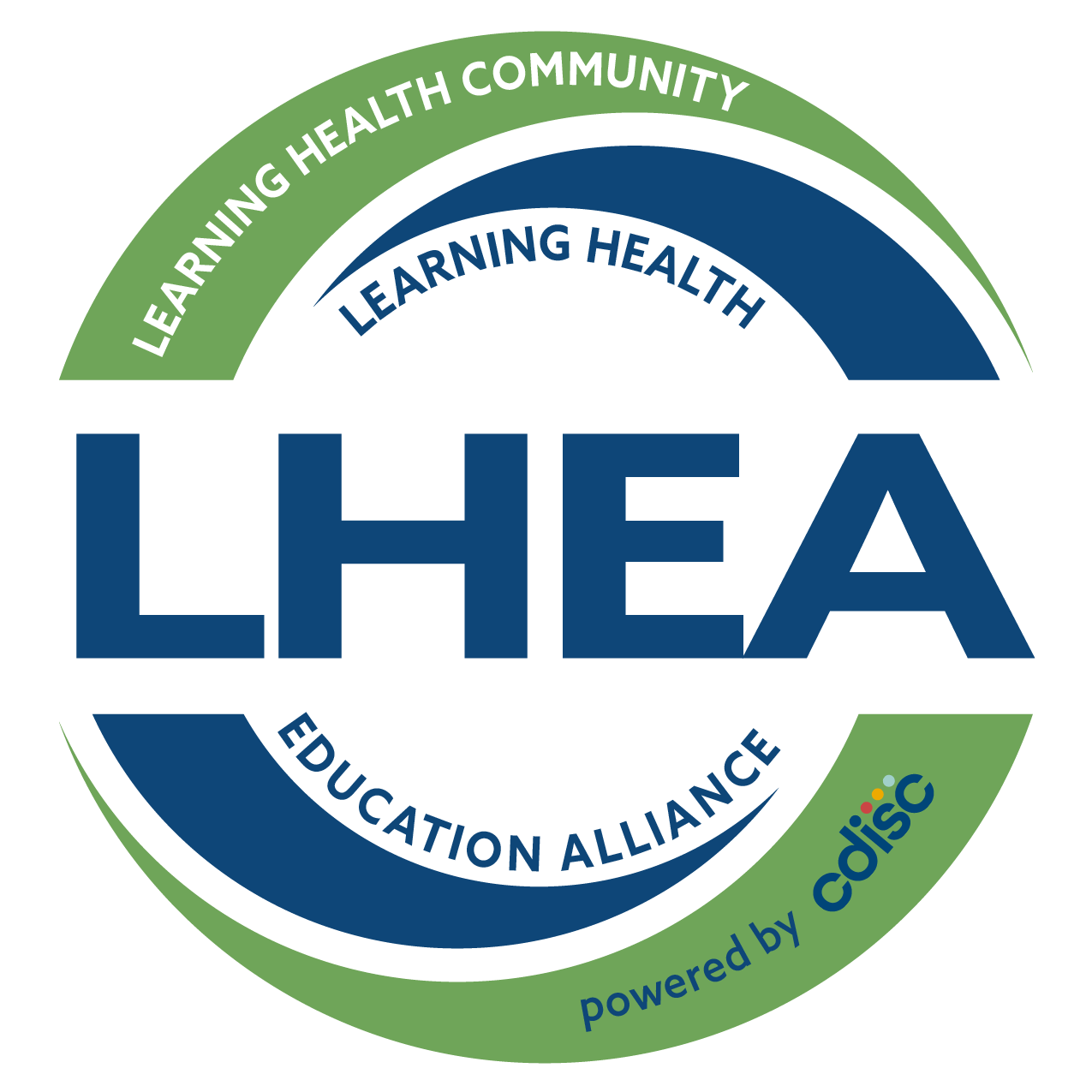
When a researcher, clinician or quality improvement team designs a study, they consider many factors:
- Will this research make a difference – to patients? to society?
- How will we find subjects/patients or data to meet the research criteria?
- Will the data answer the research question? Will it be in an analyzable format?
- Are the data sharing plan and the statistical analysis plan robust?
- Can we assure patients that their data will be protected and used wisely?
- Will the results be robust enough for wide dissemination? Will the results be publishable?
- Where do we start?
- how to ensure that patients and their concerns are at the center of the research process
- how studies leverage best practices and principles in designing and executing research studies that leverage healthcare data coming from a variety of sources;
- how TRUE research design promotes Trustworthy, Resusable, Understandable data Elements;
- how core values and characteristics of learning health systems support RWA;
- how the use of global data standards and controlled terminologies can build in efficiencies from the start;
- what global regulations, guidance and data sharing requirements are applicable for your research.
We hope you enjoy this educational journey – as a patient, clinician, researcher, medical student, protocol author, patient advocate, caregiver, or another interested party. Remember, we are ALL patients!
References
- “The Promise and Problems of Real World Data and Evidence (RWD/RWE) for Patients and Companies”, blog by Deborah Collyar, Patient Advocates In Research (PAIR) and Leanne Larson, Parexel Access
- Wilkinson, M., Dumontier, M., Aalbersberg, I. et al. The FAIR Guiding Principles for scientific data management and stewardship. Sci Data 3, 160018 (2016). https://doi.org/10.1038/sdata.2016.18
- Ohmann, C., Banzi, R., Canham, S., Battaglia, S., Matei, M., Ariyo, D., Becnel, L., Bierer, B., Bowers, S., Clivio, L., Dias, M., Druml, C., Faure, H., Fenner, M., Galvez, J., Gheris, D., Gluud, C., Groves, T., Houston, P., Karam, G., Kalra, D., Knowles, R., Kreleza-Jeric, K., Kubiak, D., Kushinke, W., Kush, R., Lukkarinen, A., Marques, P.S., Newbigging, A., O’Callaghan, J., Ravaud, P., Schulunder, I., Shanahan, D., Sitter, H., Spalding, D., Tudur-Smith, C., van Reusel, P., van Veen, E., Visser, G.R., Wilson, J., Demotes-Mainard, J., “Sharing and reuse of individual participant data from clinical trials: principles and recommendations”, British Medical Journal Open, 2017:7:e018647, doi: 10.1126/bmjopen-2017-018647
- ICMJE Statement: https://www.icmje.org/news-and-editorials/data_sharing_june_2017.pdf
- Good Clinical Trials Collaborative: https://www.goodtrials.org/
- 21st Century Cures Act and FDA: https://www.fda.gov/regulatory-information/selected-amendments-fdc-act/21st-century-cures-act21s t
- Lewis-Kraus, Gideon, “Bitter Pill”, New Yorker, 26 June 2023
